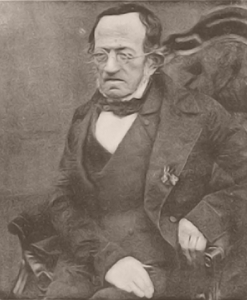Belli, Giuseppe
 Giuseppe Belli was born in Val d’Ossola in 1791. Still a boy, he moved with family to Pavia, where he later graduated in Philosophy and Mathematics.
Giuseppe Belli was born in Val d’Ossola in 1791. Still a boy, he moved with family to Pavia, where he later graduated in Philosophy and Mathematics.
In 1820 he began his didactic activity as assistant to Configliachi and, after short stays in Milan and Padua, was finally called to hold the chair of Physics at Pavia University and the role of Faculty director.
He was a reserved, private man, entirely devoted to science. He was dedicated to his studies, which he pursued with prudence and caution, always mistrusting theories which he believed to be too indulgent towards unproven assumptions.
His research may have lacked some intuition, or rather a scientific boldness in taking on new hypothesis. He was accurate and thorough, and favoured preserving old doctrines, even ones which he openly recognized as flawed, rather than embracing new ones that still posed some doubts.
In Belli’s work, one may notice an inexplicit yet precise choice: a preference for a specific branch of the Newtonian scientific legacy. At the time, two main branches were associated with Newtonianism: a general theoretic process (strongly supported by mathematical systems – Principia) and a scrupulous experimentation connected with a detail oriented analysis of empiric facts and devoid of gratuitous explicative hypothesis (Optics). Belli’s work can be ascribed to the second branch. His best quality was indeed his perseverance, which led him to truly interesting and varied observations and innovations.
He enriched science with research methods, devising and bettering machines and experimentation techniques; he never developed any theories, but excelled at illustrating the most difficult ones, at formulating them with rigour and precision and at establishing laws and relations between phenomena.
He was also an original instrument designer; he created an induction machine, an electric duplicator and a magnetic-electric engine, to name just a few.
His contribution to electrology and meteorology was particularly important. Exemplary were his studies on electric repulsion in a rarefied atmosphere, on the mathematical theory of distribution of electricity in bodies, on negative charges registered above waterfalls, on the dispersion of electric charges and on the differences between the dispersion of negative and positive charges, on the incompatibility of opposite and simultaneous charges circulating in one same wire and on electrostatic induction.
In the field of meteorology, he produced studies on meteorological phenomena (the agglomeration of storm clouds, the formation of rain drops, of snowflakes and of hail stones) that can be viewed as continuations of Volta’s work.
As for physics, Belli studied molecular attraction, trying to demonstrate the impossibility of identity between universal gravitational attraction and molecular attraction. He worked on mechanics problems, wrote on several topics and held lessons on hydrometrics that were open to the public. In geology, he demonstrated the impossibility for the Earth’s crust to hold itself as a sort of vault, and therefore the need for it to lay on a central igneous, liquid mass; he thus explained the phenomena of volcanic eruptions.
He completed a mathematical study on the approximate relation between circumference and diameter, finding a simpler way to derive it (by using three series instead of the two proposed by Eulero). He also dealt with pendulum isochronism using only elementary mathematics. In fact, his predilection for the use of elementary calculus always prevailed and he only gave in to infinitesimal analysis on rare occasions. Infinitesimal mathematics, despite its technical successes, adopted a more rigorous set up on the logic side only towards the middle of the XIX century, thus finally shedding the mysterious aura which made it so dubious. And this was indeed the reason why, by relying on logic rigour, Belli favoured algebra even where analysis could have solved problems more easily.
His best opus in the field of electrology was Corso elementare di fisica (Physics elementary course), a text for secondary schools which he began writing on invitation by the government. Only three of the five volumes requested were published, though; the amount of work required was massive and Belli was unable to complete it.
He passed away in 1860.
